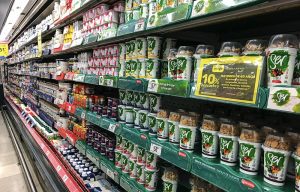Falar sobre menopausa ainda é um desafio para muitas mulheres, mas para mim é um tema que precisa ser abordado com naturalidade, informação e coragem. Assim como planejamos tantas fases da vida, também acredito que podemos planejar essa etapa – para que não seja um peso, e sim mais um ciclo de autoconhecimento e cuidado. Entre as minhas estratégias para atravessar essa fase com equilíbrio, faço meditação, yoga e tomo chá de camomila à tarde. Essas pequenas práticas me ajudam a manter a calma, a energia e a conexão comigo mesma. Além disso, tenho a sorte de contar com o apoio do Daniel, meu filho adolescente de 15 anos, e do Benjamin, meu pré-adolescente de 11. O mais velho, inclusive, já estudou sobre menopausa na escola, o que me surpreendeu e me trouxe ainda mais confiança no diálogo aberto dentro de casa.
Apesar de serem meninos tranquilos, é impossível ignorar que eles também estão atravessando suas próprias fases hormonais — com todas as curiosidades, mudanças e emoções que a puberdade traz. Às vezes, isso se manifesta em um apetite quase infinito, outras vezes em um mau humor passageiro ou uma sensibilidade inesperada. Lidar com isso exige tanto presença quanto paciência. Uma das estratégias que adoto é justamente manter o ambiente emocional da casa o mais estável e acolhedor possível. Quando noto que estão mais introspectivos ou impacientes, tento oferecer escuta sem julgamento, um lanche favorito ou simplesmente espaço para que se reorganizem internamente. São trocas que me ensinam diariamente, porque, enquanto eu navego pela menopausa, eles navegam pela adolescência — e assim vamos nos ajustando, cada um respeitando os ciclos do outro.
Com o tempo, Daniel passou a perceber também os efeitos emocionais e comportamentais dessa fase. Meus ciclos menstruais, por exemplo, já não seguem uma regularidade — o que significa que meu humor também acompanha esse ritmo instável. Ele já sabe exatamente quando estou prestes a menstruar, e às vezes tenta me fazer rir ou descontrair o ambiente. Quando percebe que estou mais sensível ou impaciente, costuma me elogiar, oferecer alguma comida ou simplesmente me fazer companhia em silêncio. Um dia, até perguntou: “Você tá naqueles dias?” — com toda a naturalidade do mundo. E por mais simples que pareça, esse tipo de atitude me faz sentir profundamente amparada.
É aí que me dou conta do quanto sou privilegiada. Lamento que a geração da minha mãe, da minha avó e de tantas antepassadas não tinham a menor ideia do que estava acontecendo com o corpo delas. Em muitos casos, eram até vistas como loucas ou diagnosticadas com algum problema mental. Hoje, graças à tecnologia, à globalização e à facilidade de acesso à informação, temos conhecimento e voz. Me sinto sortuda por fazer parte da primeira geração que fala sobre menopausa sem vergonha, sem culpa. Inclusive, figuras públicas como Fernanda Lima e Claudia Raia têm se tornado porta-vozes desse tema, trazendo ainda mais visibilidade e normalidade para algo que sempre foi natural, mas tantas vezes silenciado. Por isso, acredito que viver a menopausa com planejamento, autocuidado e informação é um ato de amor-próprio – e também um presente para os nossos filhos, que crescem aprendendo que saúde, corpo e mente devem ser tratados com respeito e naturalidade.
(English)
Between My Kids’ Adolescence and My Own Second “Puberty”: Menopause
Talking about menopause is still a challenge for many women, but for me, it’s a topic that needs to be approached with honesty, information, and courage. Just as we plan so many phases of life, I believe we can—and should—plan for this one too, so it doesn’t become a burden, but rather another chapter of self-awareness and care. Among my personal strategies to navigate this phase with balance, I practice meditation, yoga, and drink chamomile tea in the afternoons. These small rituals help me stay calm, energized, and connected to myself. I’m also fortunate to have the support of my sons—Daniel, my 15-year-old teenager, and Benjamin, my 11-year-old pre-teen. Daniel, my oldest, has even studied menopause at school, which surprised me and gave me even more confidence to keep open and honest conversations going at home.
Even though they’re both very easygoing, it’s impossible to ignore that they’re going through their own hormonal journeys—with all the questions, emotional shifts, and physical changes that come with puberty. Sometimes that shows up as an endless appetite, other times as occasional moodiness or unexpected sensitivity. Dealing with this requires both presence and patience. One of the strategies I rely on is keeping the emotional climate of our home as balanced and welcoming as possible. When I notice they’re more withdrawn or irritable, I try to offer a non-judgmental ear, a favorite snack, or simply give them space to recalibrate. These are daily exchanges that teach me just as much—because while I navigate menopause, they navigate adolescence. And together, we adapt, each respecting the other’s rhythms.
Over time, Daniel has become more aware of the emotional and behavioral shifts this phase brings. My menstrual cycles are no longer regular, which means my moods follow that same unpredictable rhythm. He now picks up on it immediately—he knows when I’m about to get my period, and sometimes he tries to make me laugh or shift the energy in the house. When he notices I’m feeling more sensitive or short-tempered, he’ll offer a compliment, bring me a snack, or just sit quietly with me. One day, he even asked, “Are you on your days?” — with complete sincerity. As simple as that moment was, it made me feel deeply supported.
It’s in moments like these that I realize how privileged I am. I think about my mother’s generation, my grandmother’s, and all the women before them—many of whom had no idea what was happening to their bodies. Some were even called crazy or misdiagnosed with mental illness. Today, thanks to technology, globalization, and easy access to information, we have both knowledge and a voice. I feel lucky to be part of the first generation that can speak about menopause without shame or guilt. Public figures like Fernanda Lima and Claudia Raia have even become advocates for this topic, helping to normalize something that has always been natural but far too often silenced.
That’s why I believe that going through menopause with preparation, self-care, and accurate information is not only an act of self-love—it’s also a gift to our children, who grow up understanding that health, the body, and the mind must always be treated with respect and openness.















